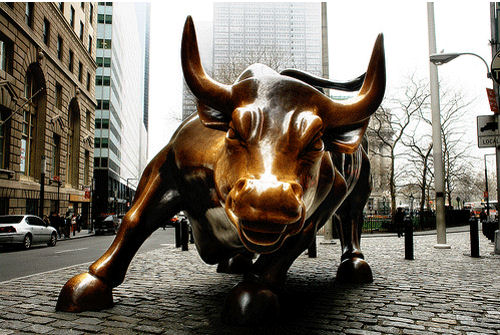General Discussion
Related: Editorials & Other Articles, Issue Forums, Alliance Forums, Region ForumsExcellent Article: Blame Rich Overeducated Elites as our Society Frays
Complex human societies, including our own, are fragile. They are held together by an invisible web of mutual trust and social cooperation. This web can fray easily, resulting in a wave of political instability, internal conflict and, sometimes, outright social collapse
Analysis of past societies shows that these destabilizing historical trends develop slowly, last many decades, and are slow to subside. The Roman Empire, Imperial China and medieval and early-modern England and France suffered such cycles, to cite a few examples. In the U.S., the last long period of instability began in the 1850s and lasted through the Gilded Age and the “violent 1910s.”
We now see the same forces in the contemporary U.S. Of about 30 detailed indicators I developed for tracing these historical cycles (reflecting popular well-being, inequality, social cooperation and its inverse, polarization and conflict), almost all have been moving in the wrong direction in the last three decades.
SNIP
How does growing economic inequality lead to political instability? Partly this correlation reflects a direct, causal connection. High inequality is corrosive of social cooperation and willingness to compromise, and waning cooperation means more discord and political infighting. Perhaps more important, economic inequality is also a symptom of deeper social changes, which have gone largely unnoticed.
SNIP
Past waves of political instability, such as the civil wars of the late Roman Republic, the French Wars of Religion and the American Civil War, had many interlinking causes and circumstances unique to their age. But a common thread in the eras we studied was elite overproduction. The other two important elements were stagnating and declining living standards of the general population and increasing indebtedness of the state.
SNIP
We should expect many years of political turmoil, peaking in the 2020s. And because complex societies are much more fragile than we assume, there is a chance of a catastrophic failure of some kind, with a default on U.S. government bonds being among the less frightening possibilities
(Continued at link)
I didn't know where to cut the article to make sense of the premise. It's an excellent article and I have a new favorite term "elite overproduction". It does give ways of preventing catastrophe. I think we all agree on most of them.
http://www.bloomberg.com/news/2013-11-20/blame-rich-overeducated-elites-as-our-society-frays.html?cmpid=hpbv
raging moderate
(4,297 posts)To me, the educations of most of our current elite seem to have been woefully shallow, narrow, insular, and incomplete.
JNelson6563
(28,151 posts)Thank you for posting this. I can see how it would be hard to narrow it down to an excerpt.
Julie
FarCenter
(19,429 posts)Following the Black Death, there have been successive cycles of expansion, overpopulation, stagnation and war.
These are the Wars of the Reformation, the Thirty Years War, the French Revolution/Napoleonic Wars, and WW I&II.
Roughly half way between total wars, there have been periods of reform such as those in the aftermath of the aborted 1848 revolutions. Slavery was ended in the US and serfdom was ended in Russia.
In the present cycle, the reforms were the protests of 1968 through dissolution of the USSR and the reforming of China.
At present, we are running up against hard limits, such as our ability to discharge CO2 without consequences, and as the population soars towards 9 billion the competition will become more and more fierce.
The next total war is due in 30 years or so.
bvar22
(39,909 posts)lets see.
It is now 2013.
3 decades= 30 years.
2013 - 30 = HEY! That is the middle of the "Regan Revolution",
....but St Ronnie hasn't been president for 30 years,
so it must be St Ronnie + something else.......
St Ronnie, PLUS 30 years of trickle down NeoLiberal, free training, union busting, privatizing, deregulating, Too Big to Fail, Invisible Hand Economics?????
By George...
I think we've Got It!!!!

[font color=white].........................[/font][font size=4]The Graven Image[/font]
Danascot
(4,690 posts)when this article was posted a couple of days ago:
http://www.democraticunderground.com/?com=view_post&forum=1016&pid=78993